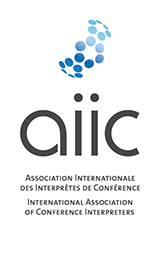Interpreters in Conflict Zones
Protect interpreters in peace and war. They bridge the cultural divide between peoples.
The AIIC project to help interpreters in conflict zones works with partners around the world. We draw attention to the plight of the multitude of interpreters who lose life and limb in conflict zones, to those imprisoned and persecuted for their work, and those at risk everywhere.
Since 2009, the AIIC group has been working to protect, inform and train interpreters working in the midst of war, danger and conflict.
Civilian interpreters caught in the crossfire
Our work has focused largely on the civilian interpreters recruited locally by coalition forces during the conflicts in Iraq and Afghanistan. Hundreds of them died and thousands were injured both physically and mentally throughout those years. Lacking in formal training, they were nevertheless a vital link in communications and often served on the front line with foreign armies. Insufficiently protected, both physically and legally, ill-informed of their duties and rights, they and their families were abandoned to their fate as the foreign troops withdrew. They fell prey to assault and murder at the hands of those among their own compatriots who consider them to be traitors and spies.
We believe that governments who were the de facto employers of interpreters serving their armies have a moral and strategic obligation to protect them during and post conflict, bringing as many as possible back to safety in our countries. Local interpreters must not suffer the same fate in the future.
Special protection status
Internationally, interpreters should at least enjoy the same levels of protection as journalists or aid workers. Ultimately, we seek a special status, similar to that which helps to protect the staff of organisations such as the International Committee of the Red Cross, to protect interpreters in danger worldwide. This is why we are currently advocating in the UN and other international organisations for a declaration which could lead to the specific legal protection of interpreters and end impunity for crimes committed against them.
Our actions
- We co-authored and signed a Field Guide published in 2012 underscoring rights, duties and professional ethics to facilitate work between field interpreters and their employers (together with Red T and FIT)
(Available versions: ARA, BEL, DEU, DUT, ELL, FAS, FIN, HEB, ITA, NOR, PUS, RUS, SPA, SWE, TUR, UKR, ZHO)
- We co-authored and signed Open Letters to Heads of State, Ministers and other authorities on behalf of interpreters in danger (together with an international coalition of partner organisations including Red T, FIT , IAPTI , Critical Link , WASLI , CIUTI)
- We have delivered presentations at events in universities, associations, exhibitions, etc.
- We have spoken to international organisations such as the Council of Europe, the European Parliament and the UN
- We have spoken to national parliaments: The UK House of Lords
- We keep an active social media presence
- To help us reach our goal, you are invited to sign this petition to the UN
- Tips and strategies for interpreters working in conflict zones
